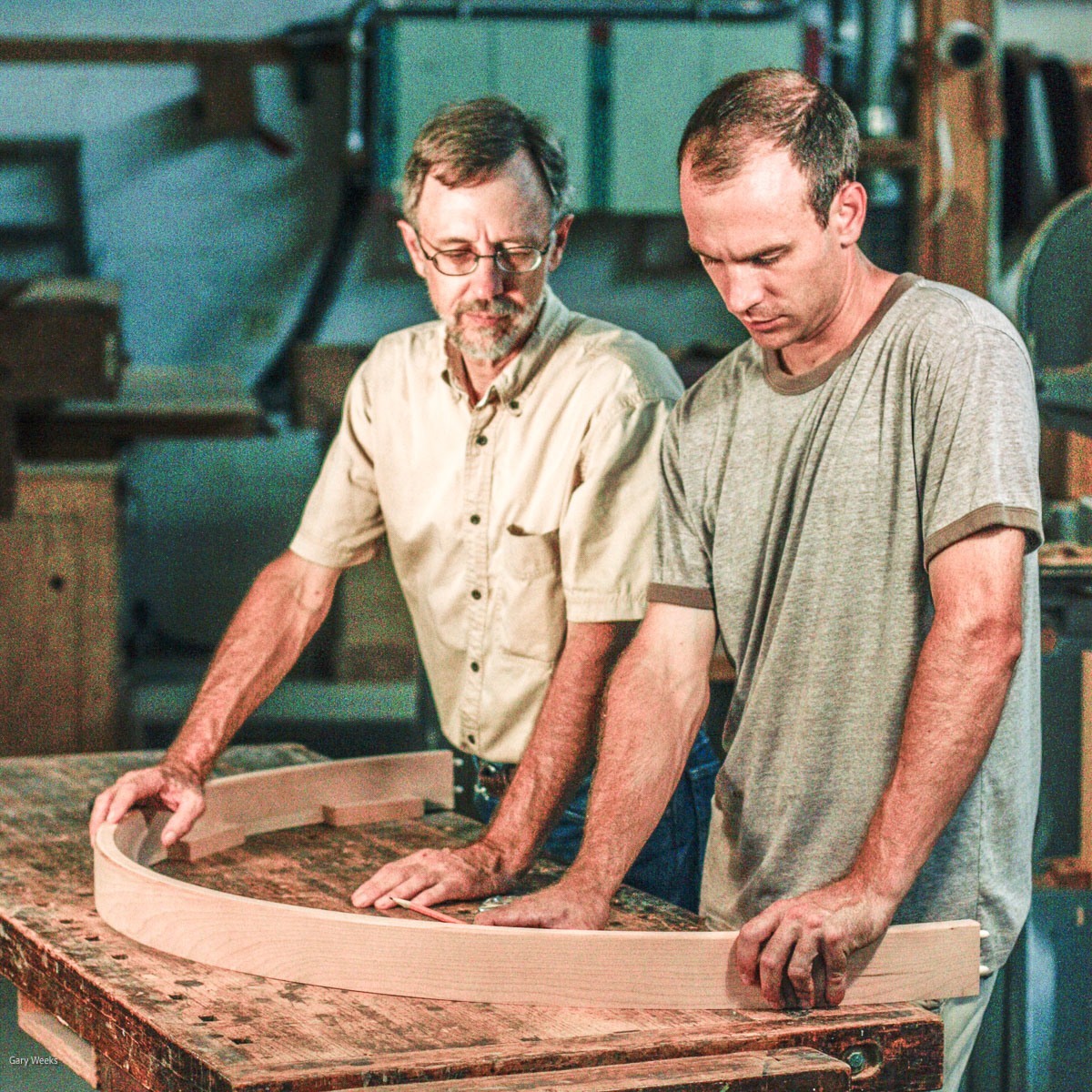Design Criteria
Guy ClarkStuff that works. Stuff that holds up.

For Comfort and Utility
- Dining chairs in which anyone can sit for hours without feeling an edge, a flat, or an odd angle.
- Rocking chairs in which a parent can rock for hours in the middle of the night and feel as softly enfolded as the infant in arms.
- Dining tables and desks with room for legs, knees, and toes.
- Cabinets, dining tables, and desks sized for their space and configured for their use.
- The surface and edges of every piece of furniture provide a sensuous touch to all hands.
For Longevity
- Joints appropriate to the load.
- Respect for the technical specifications of the material.
- Craftsmanship of the highest order.
For Beauty
- Lines, curves, contours, and surface quality secure each piece as a work of art.
- Figure, color, and character of the wood carefully composed and revealed within the form.
For Efficiency and Safety
- How can the parts be developed from available lumber?
- Can we build a tool, jig, fixture, or machine to perform this task safer and with more precision?
- Where can we apply our handwork to the most benefit of our patrons?
For Service
- Build to the highest standards of beauty, construction, fit, and finish.
- Communicate with respect and comprehension.
- Sell for less than such artistry would suggest.
- Deliver on time.
Navigation
Home
Footstools
Side Tables
Floor Protection
Videos
Shop Log
Contact Us
Cherry Rocking Chairs
Walnut Rocking Chairs
Maple Rocking Chairs
Porch Rockers
Mesquite Rocking Chairs
Special Edition Rockers
Dimensions
360° Views of our Rocking Chair
Custom Rocking Chairs
Wooden Rocking Chairs
Comfortable Rocking Chairs
Chairs for Rocking Babies
Rocking Chair for Retirement
The Gift of a Rocking Chair
Is the Weeks Rocker a copy of the Maloof Rocker?
Directory of Handmade Rocking Chair Makers
Press Kit
Wimberley Living, November 2025
Woodworker West, 2023
Saturday Evening Post, 2021
Houston Family Magazine, November 2018
Hill Country View, May 2018
PEC: Heart of the Hill Country, March 2018
Wimberley Visitor's Guide, Spring and Summer 2018
Esquire, April 2016
Dallas Modern Luxury, Fall 2010
Edible Austin, Fall 2010
Edible Austin, Summer 2010
Practical Ecommerce, March/April 2008
Ranch & Rural Living, January 2007
Denver Post, June 2006
Southern Living, June 2006
Northwest Certified Forestry, Spring 2006
Dallas Morning News, December, 2005
Furniture & Cabinet Maker, April 2004
Woodshop News, March 2004
The Australian Woodworker, June 2003
New Texas, November 2001
Texas Co-op Power, December 1999
The Art of Living, May 1999
Texas Monthly, May 1999
Cabinet Maker, April 1999
Lake & Country Living, March 25, 1999
The Woodworker, March 1999
Woodshop News, February 1999
Interiors & Sources, January/February 1999
Custom Woodworking Business, January 1999
Austin American-Statesman Life & Arts, December 1998
Modern Woodworking, December 1998
Wimberley View
Wimberley View, March 1993